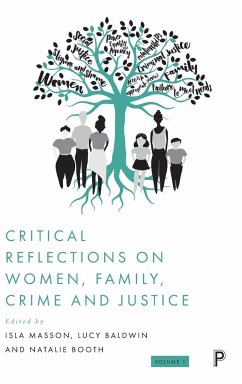
Critical Reflections on Evidence-Based Policing
Versandkostenfrei!
Versandfertig in 1-2 Wochen
55,99 €
inkl. MwSt.

PAYBACK Punkte
28 °P sammeln!
Evidence-Based Practice (EBP) has over the last decade made an increasing mark in several fields, notably health and medicine, education and social welfare. In recent years it has begun to make its mark in criminal justice. As engagement with EBP has spread, it has begun to evolve from what might be regarded as a somewhat narrow doctrine and orthodoxy to something more complex and various. Often criminological research has been at odds with the assumptions, conventions and methodologies associated with first generation EBP. In that context EBP poses a challenge to the research community and ex...
Evidence-Based Practice (EBP) has over the last decade made an increasing mark in several fields, notably health and medicine, education and social welfare. In recent years it has begun to make its mark in criminal justice. As engagement with EBP has spread, it has begun to evolve from what might be regarded as a somewhat narrow doctrine and orthodoxy to something more complex and various. Often criminological research has been at odds with the assumptions, conventions and methodologies associated with first generation EBP. In that context EBP poses a challenge to the research community and existing evidence base and is, accordingly, hotly controversial. This book is a welcome and timely contribution to current debates on evidence-based practice in policing. With a sharp conceptual focus, the chapters provide a critical examination of the recent history of EBP in academic, policy and practitioner communities, evaluate key dimensions of its application to policing, challenge established understandings and pave the way for a much needed change in how research 'evidence' is perceived, generated, transferred, implemented and evaluated.














